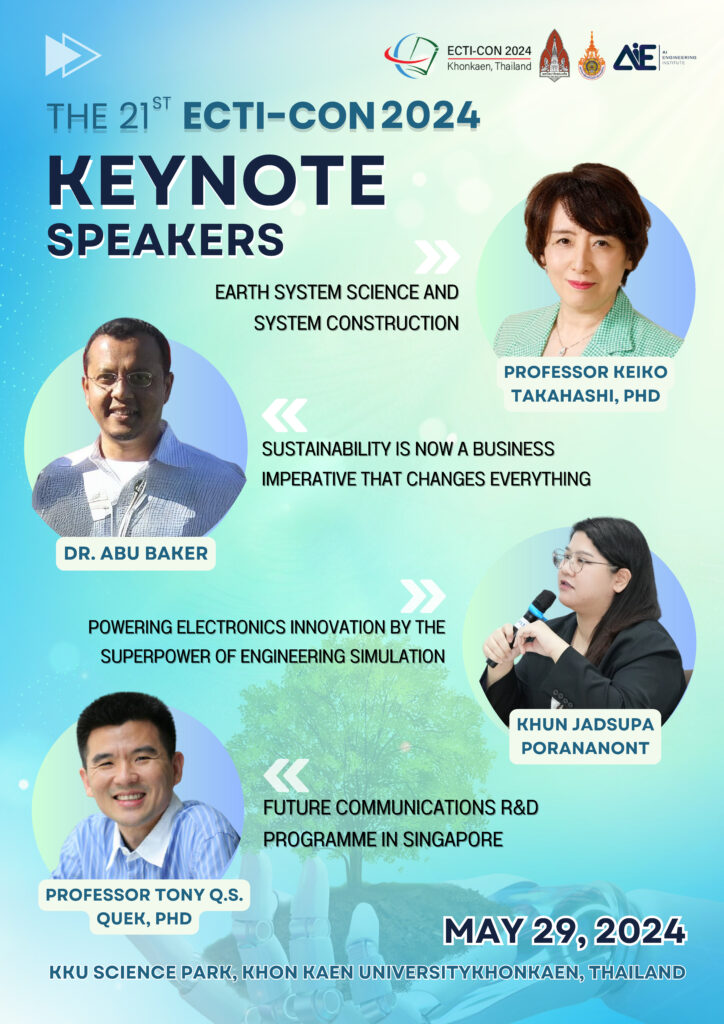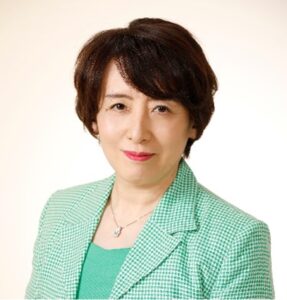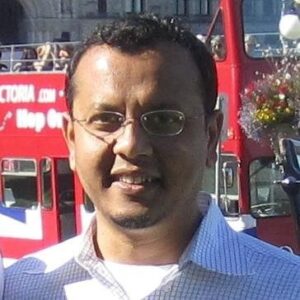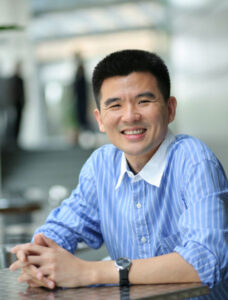
Earth System Science and System Construction
PROFESSOR Keiko Takahashi
Waseda University

Abstract
The average global temperature in 2023 is certain to be the hottest in recorded observation history. It has been scientifically clarified in the IPCC report that changes in the global environment, typified by global warming, are the result of long-term effects of human activities on the global environment. This suggests that global environmental changes are the accumulation of human activities, each on a small scale, affecting the entire planet. These global environmental changes are linked to many global issues in our society, such as energy, natural disasters, and food. The Earth can be considered a system. The components of the Earth system are huge, and the relations among them are diverse. Furthermore, it exhibits complex system behavior that is both nonlinear and nonequilibrium. We need to consider from the standpoint of systems science what actions we should take to realize a society that maintains balances with nature to build the earth system as a sustainable system. The world’s water problems have become more serious in recent years. We focus on water circulation system, which is one of the most important systems of the Earth system. We have been able to perform large-scale/small-scale water circulations to clarify where water comes from, what it carries, how it changes phases, and how it behaves and circulates over time and space scales. Our simulations have explored what kind of actions we can take to create a sustainable water environment. In my presentation, I will introduce the water general circulation model that we have been developed, including an overview of atmospheric general circulation model which can explicitly express the process of cloud formation and disappearance, ocean model, and land surface and groundwater system model, and coupled method that interchanges the physical quantities among those models. Furthermore, we will introduce the method for artificial use of water or artificial environmental changes due to human actions into this water general circulation model. Case studies will be presented to illustrate how states of the environment can be changed by altering anthropogenic actions. Based on these results, I would like to introduce future perspectives on Earth system science.
Biography
Keiko Takahashi received Ph.D in engineering from Tokyo Institute of Technology in 1991. She joined Kao Corporation in Tokyo until 1993. She was an invited research scientist in Computer Laboratory of University of Cambridge UK during 1993-1994 and in Tokyo Institute of Technology during 1994-1998. She worked as a scientist and Director-General of Center for Earth Information Science and Technology in Japan Agency for Marine-Earth Science and Technology until 2021. Since April 2021, she has been a research professor of Waseda University. She had been a member of Science Council of Japan during 2014-2020. Her current research interests are climate/weather prediction and understanding response mechanisms to the global climate change with multi-scale multi-physics simulations.
Sustainability is now a business imperative that changes EVERYTHING
Abu Baker
Master Technologist, Hewlett-Packard

Abstract
The next generation of high-performance chips for AI, big data, self-driving cars and IoT must use low-power technology for the sake of the Earth. We are doing all we can to overcome the limits of technology to perfect our green processes. Therefore, enterprises that want to make a positive impact on the planet need the right combination of strategic partnerships and AI-infused technology to put their sustainability goals into action. In the race to reduce emissions, consumption, and environmental impacts, companies across sectors are looking to transform their business models by prioritizing sustainability in their core operations and to meet the growing demands of key stakeholders and conscientious customers. But organizations can’t do it alone. The pursuit of net zero can only truly begin when an organization is able to monitor, track, and report on their carbon footprint, energy transition goals, and environmental, social and governance (ESG) data. My presentation will talk through how the transformation to a sustainable future empowered by AI-driven technology can make an impact in the world.
Biography
Abu Baker is a Master Technologist for Commercial Notebooks Personal Systems at Hewlett Packet. He leads key programs involving multiple Firmware functions in EpSC (End Point Security Controller), Biometric devices, and contextual Artificial Intelligence technology. Before joining HP, Abu Baker worked for Microsoft Corporation as a Software Development Architect for the Surface Tablet. He implemented appropriate debug and troubleshooting procedures to quickly determine the best course for problem ownership and resolution.
Abu Baker currently serves as an adjunct faculty member at the University of Houston. His research interest is to build a cognitive strategy to bring data sources together and empower computers with their own means of gathering information.
Abu received a PhD in Electrical Engineering and a Master of Science in Electrical Engineering. He has also served as an IEEE technical paper reviewer with several publications in the IEEE Circuits and Systems Society. He has patented ideas on Palm Rejection Algorithms for Human Interface Devices and Biometric devices.
Future Communications R&D Programme in Singapore
Tony Q.S. Quek, IEEE Fellow
Fellow of Academy of Engineering Singapore
Cheng Tsang Man Chair Professor
ST Engineering Distinguished Professor
Director, Future Comms R&D Programme
Head of ISTD Pillar
Singapore University of Technology and Design

Abstract
Communications and connectivity have become the critical foundational technology that supports Singapore’s economy. Singapore has invested close to S$70 million through the launch of Singapore’s first national Future Communications Research and Development Programme (FCP), to jumpstart cutting-edge communications and connectivity research. This grows local capability, to translate into innovative products, services and companies. The programme is hosted by the Singapore University of Technology and Design. FCP encourages collaboration between industry and research ecosystem. It will provide easy access to testbeds to facilitate development of 5G and future communication technologies. FCP seeks to collaborate with R&D partners both domestically and internationally to explore different opportunities to advance capabilities in future communications.
Biography
Tony Q.S. Quek received the B.E. and M.E. degrees in Electrical and Electronics Engineering from Tokyo Institute of Technology, respectively. At Massachusetts Institute of Technology, he earned the Ph.D. in Electrical Engineering and Computer Science. Currently, he is the Cheng Tsang Man Chair Professor with Singapore University of Technology and Design (SUTD) and ST Engineering Distinguished Professor. He also serves as the Head of ISTD Pillar, Director for Future Communications R&D Programme, Sector Lead for SUTD AI Program, and the Deputy Director of SUTD-ZJU IDEA. His current research topics include wireless communications and networking, 6G, network intelligence, non-terrestrial networks, and open radio access network.
Dr. Quek has been actively involved in organizing and chairing sessions and has served as a TPC member in numerous international conferences. He is currently serving as an Area Editor for the IEEE Transactions on Wireless Communications. He was an Executive Editorial Committee Member of the IEEE Transactions on Wireless Communications, an Editor of the IEEE Transactions on Communications, and an Editor of the IEEE Wireless Communications Letters.
Dr. Quek received the 2008 Philip Yeo Prize for Outstanding Achievement in Research, the 2012 IEEE William R. Bennett Prize, the 2016 IEEE Signal Processing Society Young Author Best Paper Award, the 2017 CTTC Early Achievement Award, the 2017 IEEE ComSoc AP Outstanding Paper Award, the 2020 IEEE Communications Society Young Author Best Paper Award, the 2020 IEEE Stephen O. Rice Prize, the 2020 Nokia Visiting Professorship, and the the 2022 IEEE Signal Processing Society Best Paper Award. He is a Fellow of IEEE and a Fellow of the Academy of Engineering Singapore.
